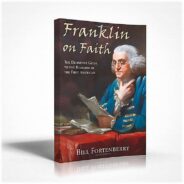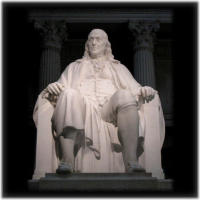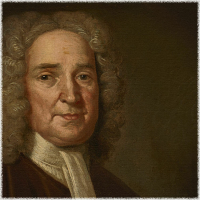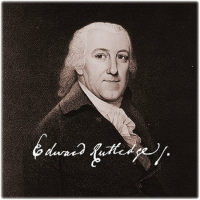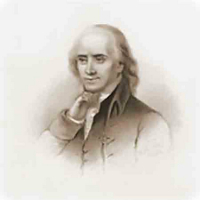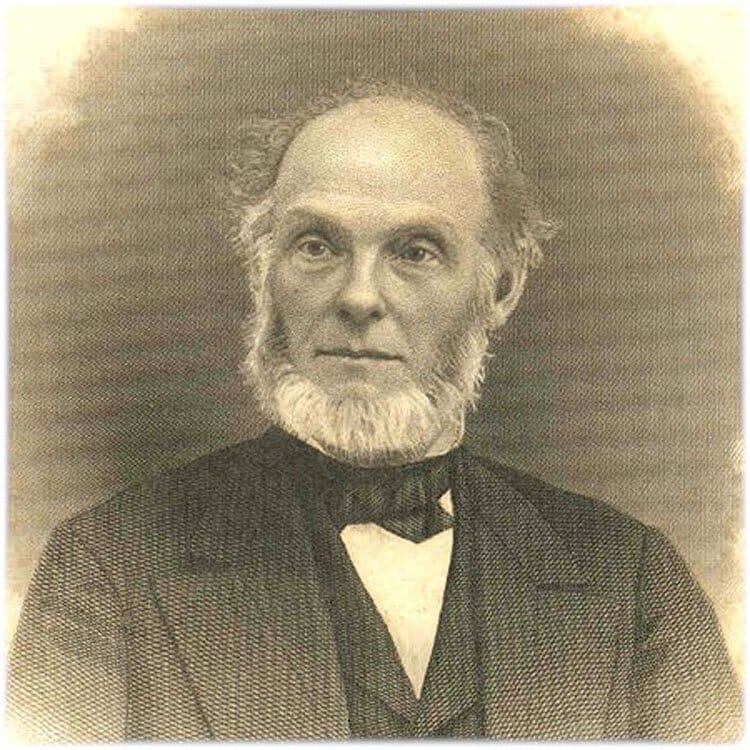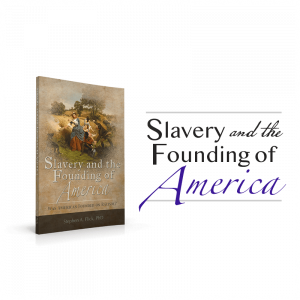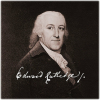The Spiritual Journey of Benjamin Franklin

For nearly a century, secularists and the irreligious have been seeking to rewrite America's Christian history to conform it to their worldview. They would have the world believe that America's Founding Fathers were atheists, agnostics, and deists, but the fact is, none of the Founding Fathers fit any of these classifications—including Benjamin Franklin and Thomas Jefferson. The History Channel and other popular media outlets have long advocated a rewriting of American history that began in the first quarter of the twentieth century. The real evidence demonstrates that America's Founding Fathers were all religious, most of whom were deeply committed Christians. Click to read the entire article…
Most contemporary Americans—being unaware of the truth—have bought into the conjectures and falsifications of America's true history. In 1926, William Woodward helped to initiate a secular and socialistic rewriting of America's history in his undocumented book, George Washington, the Image and the Man.[1] Like much of the left-wing media, Woodward based his book upon his own imagination,[2] and with other "debunking" historians, Woodward failed to document his alleged evidence—he did not produce any verifiable evidence because there was no evidence to support his claims against Washington! Following the same proofless form of writing, Cornell University professors Isaac Kramnick and R. Laurence Moore published their attempt to rewrite American history in The Godless Constitution: A Moral Defense of the Secular State.[3] Like Woodward, Kramnick and Moore did not use footnotes—they demanded that their audience simply take their word for their revisionistic claims.
With regard to the study of Benjamin Franklin, the same lack of evidence often prevails. The American public is confident of Franklin's sexual indiscretion simply because the History Channel and other popular media forms declare it to be so. Never do they read responsible scholarship that relies upon evidence and states, "...there is no shred of evidence that Franklin had affairs with French women."[4] To contemporary an American public raised on the milk of writings and media presentations based upon the conjectures of "scholars" who have sought to rewrite America's history void of its true Christian influence, evidence or proof substantiating America's Christian history will appear nearly heretical.
In January 2015, William Fortenberry published his book, Franklin on Faith: The Definitive Guide to the Religion of the First American in which he chronicled, what he believed was Benjamin Franklin's return to the Christian faith after a foray into deism. While many conservative Franklin scholars suggest that this great American statesman failed to return to the fullest biblical claims for Christianity, Mr. Fortenberry has compiled compelling evidence to challenge this position. For the readers of Christian Heritage Fellowship, Mr. Fortenberry has graciously consented to compile a few pages of his evidence from his book on this important Founding Father. From these few primary excerpts, it is abundantly clear that claims that Benjamin Franklin was a deist or secularist melt away.
It should be noted by the reader that our guest author employs the original orthography of Mr. Franklin. British spelling and rules of capitalization that also were characteristic of early America have been retained.
Article Contents
Guest Author: William Fortenberry
Benjamin Franklin was raised in a Christian home, but according to his autobiography, he decided to become a deist at the age of fifteen after reading several books on the subject. He soon began to doubt this decision, however, and he wrote that …
I began to suspect that this doctrine, though it might be true, was not very useful.
Franklin moved to London at the age of seventeen while still a deist, and during that stay, he published a pamphlet with the classical deist motto: "Whatever is, is right." After being mistreated by several of his friends who lived by the same motto, Franklin began to realize that there are things in this world which actually are wrong. He recorded in his autobiography that he …
… doubted whether some error had not insinuated itself unperceived into my argument.
And that he …
… grew convinced that truth, sincerity, and integrity in dealings between man and man were of the utmost importance to the felicity of life."
This marks Franklin’s departure from deism, but in regards to this time in his life, Franklin also wrote that, "Revelation had indeed no weight with me, as such." Although he had rejected deism, he had not yet come to accept Christianity as the appropriate alternative. He later concluded that it was only "the kind hand of Providence" which preserved him during this "dangerous time of youth."
Franklin returned from London in 1726, and two years later he wrote out his "Articles of Belief." The wording of this document is consistent with the time period after his rejection of deism but before his acceptance of the Bible as revelation from God. Using his own youthful reasoning, Franklin proposed a great hierarchy of Gods that populated the universe. He wrote:
I believe there is one Supreme most perfect Being, Author and Father of the Gods themselves. For I believe that Man is not the most perfect Being but One, rather that as there are many Degrees of Beings his Inferiors, so there are many Degrees of Beings superior to him.
Franklin explained that he arrived at this conclusion by mixing the deist concept of a God who is too infinite and great to be concerned about the affairs of men with the observable fact that all men were created with an inclination to worship something greater than themselves. Franklin postulated that the Creator God must have created smaller gods to rule over each solar system and receive the worship of the beings on the planets under their rule.
This transitional phase in Franklin’s life appears to have continued through 1731 when he wrote his outline of "Doctrine to be Preached." In the mere ten lines of this outline that have been recovered, there is still no reference to Scripture. There is, however, a marked difference between this outline and the "Articles of Belief" which Franklin had written three years prior. In this outline, Franklin completely abandoned his earlier concept of God as merely the God of our solar system with other God's above Him and instead fully embraced a single God whom he identified as the "Father of the Universe." Franklin's "Doctrine to be Preached” described God as "infinitely good, Powerful and wise" as well as "omnipresent." At this time, Franklin also recognized the existence of an afterlife and wrote that men "are made more happy or miserable after this Life according to their Actions."
This brings us to the consideration of Franklin's 1732 article, "On the Providence of God in the Government of the World" in which he argued for the intervention of God in the affairs of men. This argument agrees with Franklin's "Doctrine to be Preached" of the previous year in that it was predicated on "the Existence of a Deity and that he is the Creator of the Universe." It also agreed in the claim that God is infinitely wise, powerful and good. The 1732 article, however, introduced several additional concepts that are not seen in the remnants of the earlier outline, though they might have been in the portions that have been lost. In particular, Franklin's 1732 article included the conclusion,
… that the Deity sometimes interferes by his particular Providence, and sets aside the Events which would otherwise have been produc’d in the Course of Nature, or by the Free Agency of Men.
This conclusion marks the first indication that Franklin recognized God's direct interference in the actions of men, and it is also the first evidence of Franklin's acknowledgement of the free will of man. This article also marks the first record we have of Franklin saying that men should pray to God for "his Favour and Protection." His previous prayer in the "Articles of Belief" was primarily focused on praising God, and the request in that prayer was only for aid in maintaining good virtue. The 1732 article, by contrast, stated that men should pray for God's direct intervention in their lives.
About two years after Franklin's article on the providence of God, a new preacher by the name of Samuel Hemphill arrived in Philadelphia, and Franklin wrote in his autobiography, "I became one of his constant hearers." The same Franklin who previously had no use for churches or Christian doctrine now found himself attending every service that Hemphill preached.
It was shortly after Mr. Hemphill's arrival that Franklin published an article entitled "Self-Denial is not the Essence of Virtue." In that article, we find Franklin denying a doctrine that had been fundamental to his beliefs up to this time. He denied his previous claim that men would be rewarded by God according to their virtues. In this February 18, 1735, article, he wrote,
We do not pretend to merit any thing of God, for he is above our Services; and the Benefits he confers on us, are the Effects of his Goodness and Bounty.
Less than two months later, the Gazette published an article that many attribute to Franklin entitled, "Dialogue between Two Presbyterians." If, as is frequently assumed, the character in this dialogue represented by the initial S. conveys Franklin's own opinions, then this dialogue shows that at this point in 1735, Franklin was still struggling with the proper relationship between virtue and belief in regards to salvation. In the "Dialogue," S. claims that,
Morality or Virtue is the End, Faith only a Means to obtain that End.
S. also stated,
The whole, says he, need not a Physician, but they that are sick; and, I come not to call the Righteous, but Sinners, to Repentance: Does not this imply, that there were good Men, who, without Faith in him, were in a State of Salvation?
We will see in a moment that Franklin quickly resolved this error, but it is important to note that if Franklin actually did use S. to convey his own opinions, then this dialogue marks the first time that Franklin chose to support his theological writings with quotes from Scripture. Nor is this statement the only reference to the Bible in the dialogue. Throughout the course of the discussion, S. directly quoted nine passages of Scripture in support of his position. This is a significant change from Franklin's earlier statement that, "Revelation had indeed no weight with me."
There is another even more significant change that should be noted at this point. In the dialogue, S. made the statement,
I suppose you think no Doctrine fit to be preached in a Christian Congregation, but such as Christ and his Apostles used to preach.
And a few paragraphs later, he states,
Our Saviour was a Teacher of Morality or Virtue, and they that were deficient and desired to be taught, ought first to believe in him as an able and faithful Teacher.
If these are the opinions of Franklin himself, then this dialogue marks the first recorded instance of which this author is aware that he referred to Jesus as the Savior and as the Christ.
In addition to publishing the "Dialogue between Two Presbyterians," Franklin also published three pamphlets in defense of Hemphill. In those pamphlets, we find Franklin shedding the last vestiges of his previously held deism and fully adopting biblical Christianity. The third of these pamphlets was entitled "A Defense of Mr. Hemphill's Observations," and in it, Franklin declared in no uncertain terms that,
Christ by his Death and Sufferings has purchas’d for us those easy Terms and Conditions of our Acceptance with God, propos’d in the Gospel, to wit, Faith and Repentance.
Here at last, he had arrived at pure Christian doctrine. He finally understood that there is a God, that sin separates men from Him, that no man is virtuous enough to regain fellowship with God, that the penalty for this failure is death, that Christ paid that penalty for all men through His own death on the cross and that it is only by placing faith in His sacrifice and repenting of one's own failures that we can be brought back into favor with God. Here, Franklin speaks not as a mere deist or theist but as a true follower of Jesus Christ. As he said in his own words,
I am conscious I believe in Christ, and exert my best Endeavours to understand his Will aright, and strictly to follow it.
Franklin’s defense of Hemphill marks a radical change in the way that he wrote about Christianity. Prior to this point, Franklin had no use whatsoever for the Scriptures. He gave little if any consideration to the work of Christ. He believed in a god of his own creation, and he lived by the morals of his own choosing. From this point forward, however, Franklin’s writings are dramatically different. He accepted the Bible as the inspired and authoritative Word of God. He praised Christ for His sacrificial death and referred to Him as the Savior. He proclaimed the God of the Bible as the one true God, and he grounded his view of morality on the commands of Scripture. In short, Franklin’s writings reveal that a significant spiritual change took place in his life sometime during the year 1735, and I believe that this year can rightly be identified as the year that Franklin became a Christian.
Franklin, however, was still capable of sinning. He occasionally did and wrote things that were contrary to Scripture. But never once, in the 60 years that elapsed from Franklin’s conversion to his death, did he ever return to the deism of his youth. By the time of the American Revolution, Franklin’s writings reveal that he had grown to be a mature and studious, though still sinful, believer. And it was Franklin who advised the framers of the Constitution that:
We should remember the character which the Scripture requires in rulers, that they should be men hating covetousness.
In my book, Franklin on Faith, I have attempted to collect everything that Franklin wrote which could be used to determine his religious beliefs. His letters and essays are presented in chronological order intermixed with excerpts from his autobiography, and my commentary has been relegated to the footnotes. It is my hope that this format will allow my readers to follow the progression of Franklin’s own accounts of his beliefs and to arrive at a more complete understanding of his faith.
America deserves to know its true heritage.
Please contribute today!
"Anchor Elements" are concepts, events, individuals, terms, or other important components that are featured in this article and which act as reference points for use in other articles throughout our site.
No index entries found.
[1] William E. Woodward, George Washington, the Image and the Man (New York: Boni and Liveright, 1926).
[2] Harold Brackman, "'Biography Yanked Down out of Olympus': Beard, Woodward, and Debunking Biography," Pacific Historical Review 52, no. 4 (Nov. 1983).
[3] Isaac Kramnick and R. Laurence Moore, The Godless Constitution: The Case against Religious Correctness, 1st ed. (New York: Norton, 1996).
[4] John Eidsmoe, Christianity and the Constitution: The Faith of Our Founding Fathers (Grand Rapids: Baker Book House, 1987), 206-207. Also see Claude-Anne Lopez and Eugenia W. Herbert, The Private Franklin : The Man and His Family, 1st ed. (New York: Norton, 1975), 26-27.
Spiritual Journey of Benjamin Franklin
Spiritual Journey of Benjamin Franklin
Spiritual Journey of Benjamin Franklin
Spiritual Journey of Benjamin Franklin
Spiritual Journey of Benjamin Franklin
Spiritual Journey of Benjamin Franklin
Spiritual Journey of Benjamin Franklin
Spiritual Journey of Benjamin Franklin
Spiritual Journey of Benjamin Franklin
Spiritual Journey of Benjamin Franklin
Spiritual Journey of Benjamin Franklin
Spiritual Journey of Benjamin Franklin
Spiritual Journey of Benjamin Franklin
Spiritual Journey of Benjamin Franklin
Spiritual Journey of Benjamin Franklin
Spiritual Journey of Benjamin Franklin
Spiritual Journey of Benjamin Franklin
Spiritual Journey of Benjamin Franklin
Spiritual Journey of Benjamin Franklin
Spiritual Journey of Benjamin Franklin
Spiritual Journey of Benjamin Franklin
Spiritual Journey of Benjamin Franklin
Spiritual Journey of Benjamin Franklin
Spiritual Journey of Benjamin Franklin
Spiritual Journey of Benjamin Franklin
Spiritual Journey of Benjamin Franklin
Spiritual Journey of Benjamin Franklin
Spiritual Journey of Benjamin Franklin
Spiritual Journey of Benjamin Franklin
Spiritual Journey of Benjamin Franklin
Spiritual Journey of Benjamin Franklin
Spiritual Journey of Benjamin Franklin
Spiritual Journey of Benjamin Franklin
Spiritual Journey of Benjamin Franklin
Spiritual Journey of Benjamin Franklin
Spiritual Journey of Benjamin Franklin
Spiritual Journey of Benjamin Franklin
Spiritual Journey of Benjamin Franklin
Podcast: 'Spiritual Journey of Benjamin Franklin,' by Mr. William Fortenberry.


